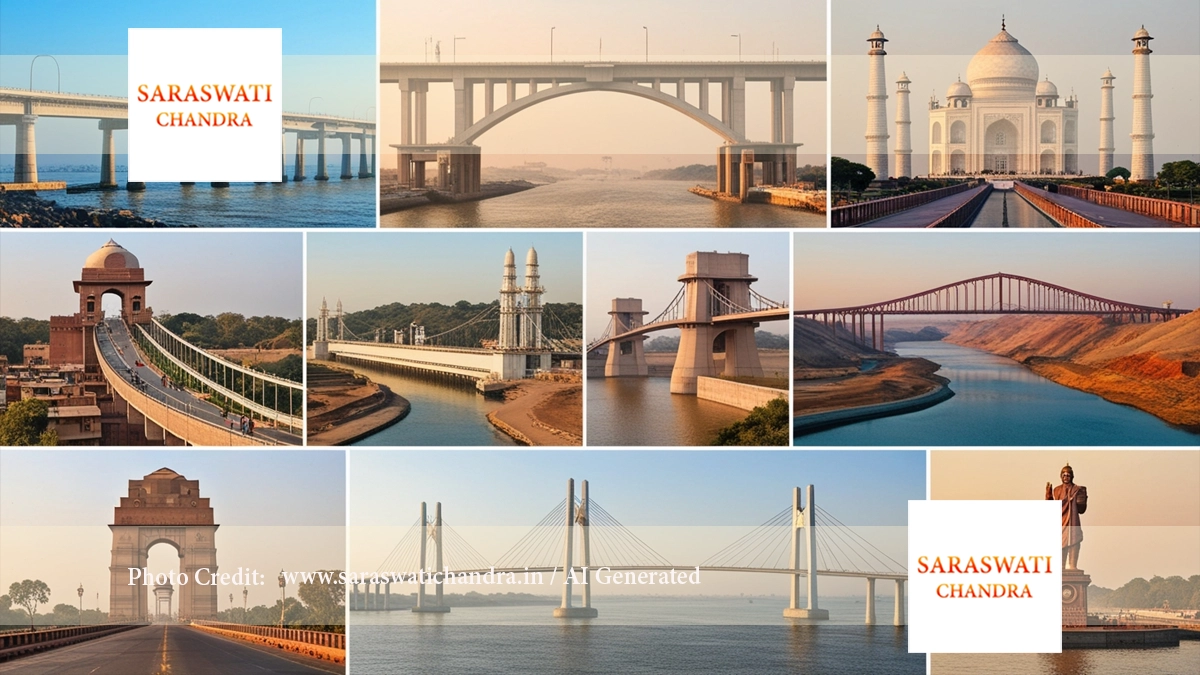Civil Engineering Wonders in India: Marvels of Innovation and Heritage
India is home to incredible civil engineering marvels that stand as testament to both ancient wisdom and modern innovation. From towering bridges to intricate dams, these structures embody India’s prowess in engineering and architecture. Here’s a look at some of the most remarkable civil engineering achievements in India.
1. Bandra-Worli Sea Link
The Bandra-Worli Sea Link in Mumbai is a symbol of India’s modern engineering capabilities. This 5.6-kilometer-long cable-stayed bridge connects Bandra to Worli, significantly reducing travel time. Completed in 2010, the bridge was designed to withstand extreme weather conditions, withstanding wind speeds up to 200 km/h.
2. Konkan Railway
One of the most challenging railway projects in India, the Konkan Railway spans over 700 kilometers along India’s western coast. Navigating rugged terrains and crossing numerous rivers, it includes over 2,000 bridges and 91 tunnels, including the Panvalnadi Bridge, which stands as one of Asia’s tallest viaducts.
3. Bhakra Nangal Dam
The Bhakra Nangal Dam, built across the Sutlej River, is one of India’s most significant multi-purpose dams. Standing 226 meters tall, it generates hydroelectric power and provides irrigation for several states. Completed in 1963, this dam was a monumental achievement and continues to support India’s agricultural and power needs.
4. Delhi Metro
The Delhi Metro revolutionized urban transport in India’s capital. With over 300 kilometers of track, it serves millions of commuters every day. Known for its efficiency and eco-friendliness, the Delhi Metro is also the first in the world to receive a UN certificate for its efforts to reduce greenhouse gases.
5. Chenab Bridge
Poised to become the world’s highest rail bridge, the Chenab Bridge is a marvel of Indian engineering in the Jammu and Kashmir region. This arch bridge, built 359 meters above the Chenab River, will connect the Udhampur-Srinagar-Baramulla rail link, facilitating access to the Kashmir Valley.
6. Statue of Unity
The Statue of Unity, located in Gujarat, is the world’s tallest statue at 182 meters. Built to honor India’s Iron Man, Sardar Vallabhbhai Patel, it stands as a testament to India’s dedication to national unity and strength. This engineering marvel includes an intricate design for earthquake resistance, making it a global attraction.
7. Jawaharlal Nehru Stadium
Named after India’s first Prime Minister, the Jawaharlal Nehru Stadium in Delhi is one of the largest stadiums in Asia, with a seating capacity of over 60,000. Renovated for the 2010 Commonwealth Games, it features a modern cantilever roof structure and advanced lighting systems, reflecting India’s sports infrastructure evolution.
The Significance of India’s Civil Engineering Achievements
These engineering marvels are not only important landmarks but also demonstrate the blend of historical techniques with cutting-edge technology. Civil engineering in India plays a vital role in shaping the nation’s infrastructure, economy, and tourism, providing world-class examples of resilience and ingenuity.
Each of these civil engineering wonders tells a story of human ambition and technological achievement. They offer insights into India’s journey, from ancient craftsmanship to modern innovation, making India’s infrastructure an inspiring subject for engineers, architects, and tourists alike.

[…] as it was when it was first completed. Its ongoing preservation and maintenance reflect modern civil engineering techniques, ensuring that it continues to stand tall for generations to […]
[…] problems. The Seikan Tunnel’s legacy is a reminder that with determination and ingenuity, civil engineers can turn the most ambitious visions into a […]